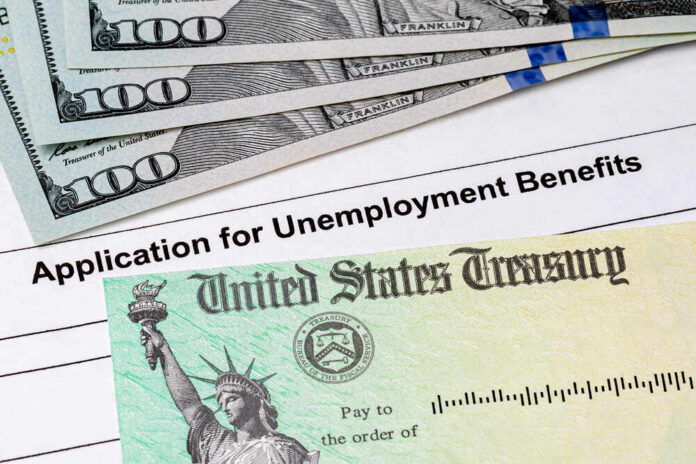
The COVID-19 pandemic hasn’t just been a health crisis; it’s exposed significant vulnerabilities in our government’s safety net programs, most notably unemployment insurance. According to a new Government Accountability Office (GAO) report, a staggering $100 to $135 billion in unemployment benefits may have been fraudulently claimed between April 2020 and May 2023. Alarmingly, that’s 11% to 15% of all the benefits paid during that period.
The GAO’s revelation isn’t entirely new but rather an escalated concern. “The study doubles the original Government Accountability Office’s estimate provided to the House Ways and Means Committee in February,” the watchdog noted. They also cautioned that the “full extent of unemployment fraud during the pandemic will likely never be known with certainty.”
Your tax dollars at work:
Fraudulent unemployment payments doled out during COVID up to $135B: watchdog https://t.co/uz04BQlERQ
— Al (@AlBeachGuy) September 13, 2023
Despite the Biden administration allocating more than $1 billion to states for fraud prevention, detection, and recovery, the situation remains dire. States have clawed back a mere $1.2 billion in fraudulent payments, a drop in the ocean compared to the estimated losses. Rep. Jason Smith (R-MO), chairman of the House Ways and Means Committee, correctly stated that the estimated fraud amounts to “the greatest theft of taxpayer dollars in American history.”
This issue isn’t isolated to the federal level. In California, where Julie Su was head of the Labor and Workforce Development Agency until July 2021, the state saw $31 billion in fraudulent unemployment claims. Californians now bear the burden of a new payroll tax, mockingly termed the “Su Tax” by Republicans, which could cost workers over $400 each annually.
Fraud vulnerabilities also extend to other pandemic relief efforts. About $200 billion was stolen from programs like the Economic Injury Disaster Loan Program and the Paycheck Protection Program. Yet, as the GAO points out, unemployment insurance remains “particularly susceptible.”
Why? Unemployment programs have “long-standing challenges detecting and preventing fraud,” exacerbated by the urgency of pandemic relief measures. The GAO has issued 26 recommendations since 2018 aimed at reducing fraud in these programs, of which only ten were implemented by the Department of Labor (DOL).
Sen. Mike Crapo (R-ID) insists that Congress needs to pass the Protecting Taxpayers and Victims of Unemployment Fraud Act. This proposed legislation aims to recoup stolen funds and prevent such large-scale theft from happening in the future. The GAO also emphasizes that “without consistent commitment to these efforts, DOL cannot ensure that it is prioritizing and addressing UI fraud risks effectively.”
It’s time our elected officials take unemployment fraud seriously, not just for the integrity of our public programs but for the future of taxpayer dollars. Every fraudulent payment diverts resources from “law-abiding Americans who deserve assistance,” as Rep. Smith put it. In a period where every dollar counts, allowing fraud of this magnitude is unacceptable and a betrayal of public trust.



























